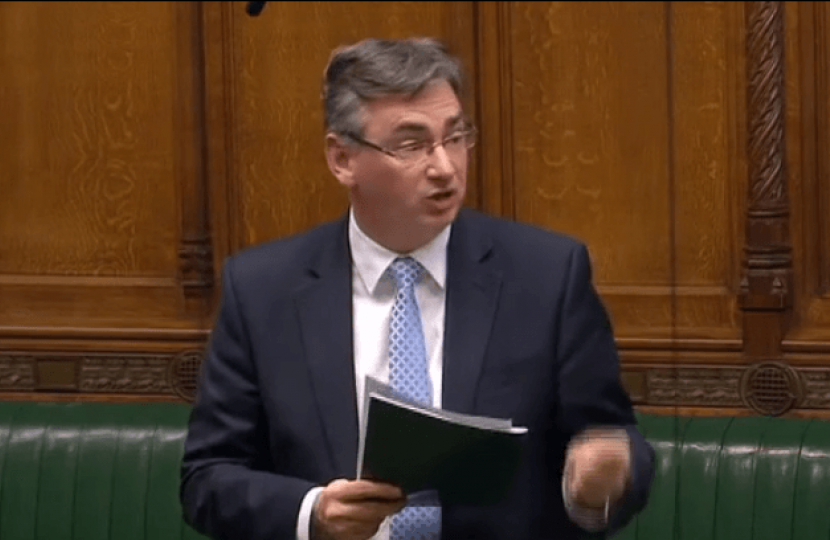

As many of you will know, we are currently in the middle of a hugely important debate in Parliament, where MPs are spending five days discussing the Government’s proposed Withdrawal Agreement.
Like any compromise, there are elements of it which are difficult to swallow. I am especially concerned about the so-called ‘backstop’, and whether or not the United Kingdom would be able to choose to leave it in the future.
However Solihull is an exporting town, home not only to major British brands such as Jaguar Land Rover but a wide range of manufacturers and service providers who rely on smooth trade with the European Union to maintain supply lines and reach their customers.
I therefore believe that it is my duty to support the deal, which balances the need to respect the result of the referendum with the best interests of our local economy and employers, and will cast my vote with the Government on Tuesday.
As a member of the House of Commons’ Digital, Culture, Media, and Sport Select Committee, I have also had the opportunity to play an active role in Parliament’s investigation into ‘fake news’.
In the course of our inquiry I made international headlines when I challenged Mike Shroepfer, Facebook’s Chief Technical Officer, that his company had created a “morality-free zone” which was allowing unscrupulous companies to exploit the personal information of millions of people.
Therefore I was very proud last week to take part in the next big step towards a robust, effective system for protecting data and web users: the first meeting of the International Grand Committee (IGC) on Disinformation and ‘Fake News’.
Bringing together 24 legislators from nine countries – Argentina, Belgium, Brazil, Canada, France, Ireland, Latvia, Singapore, and the UK – the purpose of the IGC was to discuss our how countries can cooperate more effectively in the face of companies, apps, and websites which transcend traditional borders.
Sadly Mark Zuckerberg, the CEO of Facebook, refused to come and give evidence. But whilst he might avoid tough questions in the room, neither he nor the other web giants will be allowed to stick their heads in the sand and ignore the need for reform.
That’s why we concluded our investigation by signing the ‘International Principles for the Law Governing the Internet’, which I hope will lay the foundations for the systems we need to hold these companies to account.
Originally published in the Solihull News, 07/12/18.
